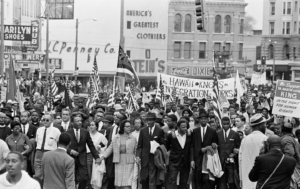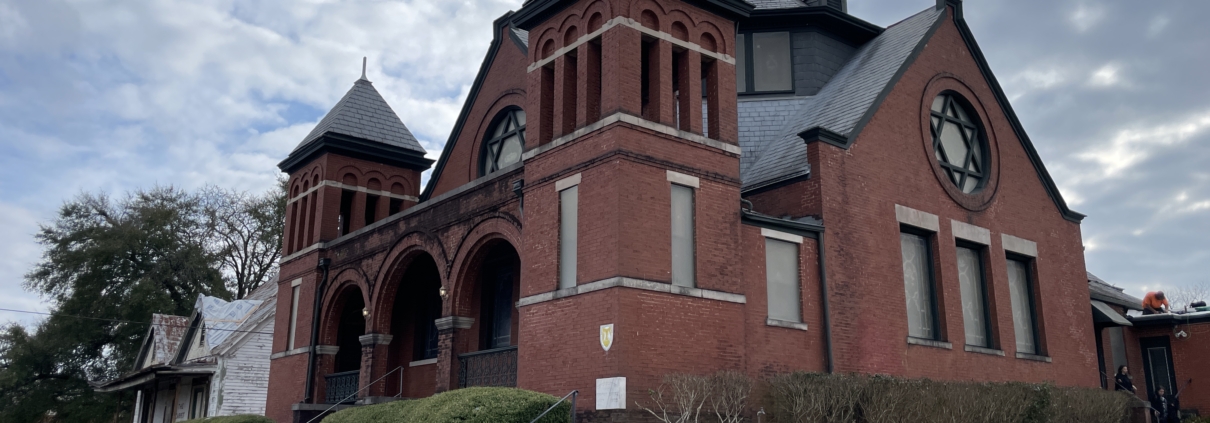Southern Jews and Jewish Values
The American South hosted Jewish immigrants hoping to live the American Dream. German Jews, Ashkenazi Jews, and Sephardic Jews all found refuge below the Mason-Dixon line. Yet, their American dream included the dual terrors of discrimination and segregation.
Jewish communities thrived throughout the South during times of Jim Crow segregation. They had cordial relationships with their Christian neighbors. Jews had retail businesses and relied upon White Christian customers. And Jews of the South generally refrained from participation in the civil rights movement.
We learned more by visiting the only remaining synagogue in Selma. Temple Mishkan Israel stands on Broad Street in the heart of Selma, Alabama’s downtown. In 2023, there are three members remaining. Not three families. Three members. We met with Ronnie Leet. The meeting began with a video about the synagogue. The video was also a fundraising pitch. The building needs $5 million dollars of repairs. Leet argued for the preservation of the building as the only way to tell the story of Selma’s once-thriving Jewish community.
Of interest to our group was how Leet and his family viewed the Civil Rights Movement. The Leet family watched from a distance. They had a retail store. Mr. and Mrs. Leet worked every day. They had long participated in society with their white Christian neighbors. The Leets feared upsetting those relationships. While his family may have been sympathetic to their Black neighbors, Civil Rights was not their fight. 
Ronnie Leet’s answer was direct and honest. Like the Leets, most of us focus on our families, our livelihoods, and our health. We might take interest in the news and donate to causes. Human nature is inclined toward stasis, even if the arc of the universe leans toward justice.
Jews believe in truth and justice. We celebrate freedom every Sabbath and every Passover. We helped Soviet Jews escape repression. But supporting Soviet Jews did not jeopardize our jobs. We were writing checks to help Israel on Yom Kippur in 1973. But supporting Israel did not imperil our families.
Some will argue that we have an obligation to our own people before we can help others. I might agree with that argument if we were a people of limited resources and limited power. But American Jews have more wealth and more power now than any Jewish people in over 2,000 years. Our place in America is secure, despite recent episodes of anti-semitism.
I don’t condemn the Selma Jewish community of the mid-twentieth century. They were afraid and fear motivates us to protect ourselves. Rather, I will focus on those who did show up, who funded civil rights campaigns, and who pressured their representatives to rectify the injustices of segregation.
The Southern Jewish communities are dwindling in size. Where there is racism, there is anti-semitism. Why would Jews continue to live and work where their futures are in peril?
While life for Jews in America has improved in the past sixty years, discrimination against African Americans continues. Jews might leave the South, but let’s not forget our fellow Americans who suffer bias and degradation.






 Evan J. Krame was ordained as a rabbi by the
Evan J. Krame was ordained as a rabbi by the